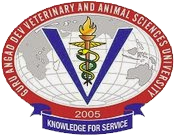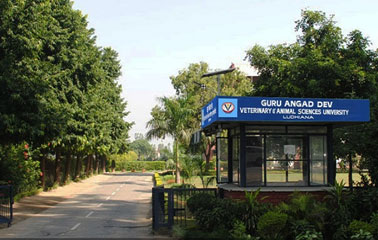

Women are important and integral part of physical and economic strength of our society. Their vital contribution can develop more positive and new horizons in the society. These views were expressed by Dr. V. K. Taneja Vice Chancellor, Guru Angad Dev Veterinary & Animal Sciences University, Ludhiana in context of International Women’s Day. He was explaining the crucial role of women in livestock and agriculture sector with future perspective. Dr. Taneja said that agriculture related professions demand more physical labor whereas livestock sectors need less physical input, so are more female friendly. He said that women are contributing very much in livestock professions in rural folk but not in systematic manner. So their contribution did not reflect in calculative data. The organized work of women‘s may deliver better results in production and economy.
He quoted The State of Food and Agriculture report of Food & Agriculture Organisation of UNO explaining that Women comprise, on average, 43 percent of the agricultural labour force in developing countries. Women in agriculture and rural areas have less access than men to productive resources and opportunities. The gender gap is found for many assets, inputs and services and it imposes costs on the agriculture sector, the broader economy and society as well as on women themselves. Female farmers produce less than male farmers, but not because they are less-efficient farmers. Extensive empirical evidence shows that the productivity gap between male and female farmers is caused by differences in input use. Closing the gender gap in agriculture would generate significant gains for the sector and for society. If women had the same access to productive resources as men, they could increase yields on their farms by 20–30 percent. This could raise total output in developing countries by 2.5–4 percent. Production gains of this magnitude could reduce the number of hungry people in the world by 12–17 percent. Policy interventions can help close the gender gap in agriculture and rural labour markets. In addition to increasing overall agricultural production, closing the gender gap in agriculture would also put more income in the hands of women - a proven strategy for improving health, household nutrition and education outcomes for children.
Dr. Taneja said that vet varsity may help women’s in different aspects to develop them as entrepreneurs. We have a number of value added products like flavored milk, different type of lassi, whey drink, cheese, dhoda burfi, milk cake, meat pickle, meat patties, fish products, ornamental fish and aquarium business. Trainings are available on all the products and professions. Dr. Taneja said that the theme of 2012 international women’s day is ‘Connecting Girls Inspiring Futures’ so he invites women to create the self help groups. These groups may do well in all the categories. Advance education to women in the field of animal husbandry may also reap good results in research, extension and further studies because these professions are more inclined to females.
